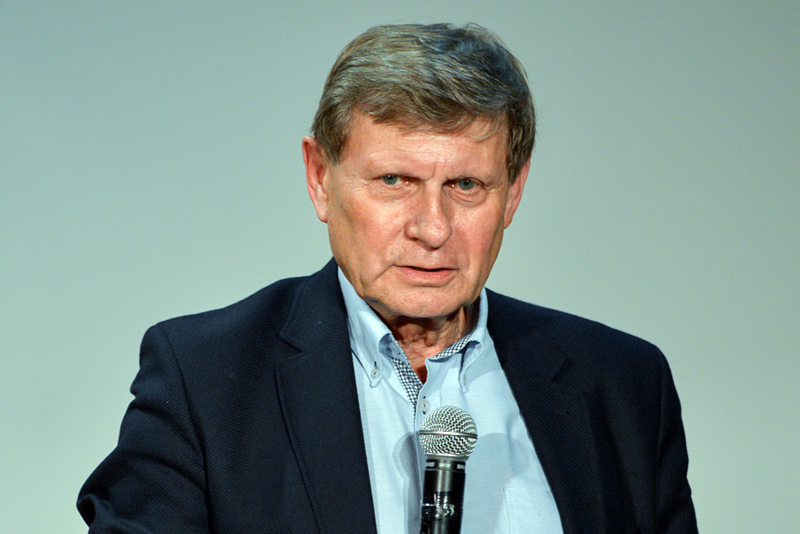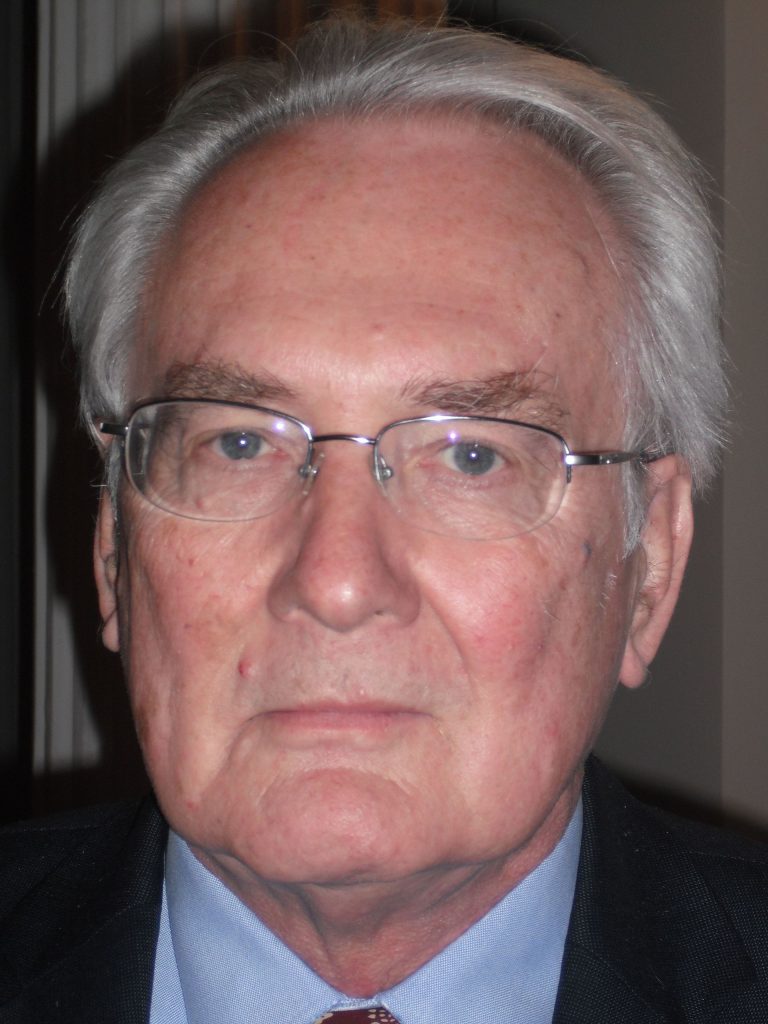- CEA Talk Online conference
“Is there a future for Hungary and Poland outside the EU?” – this was the central question at an online conference organized by the Budapest-based Civitas Institute. Leszek Balcerowicz, former chairman of the National Bank of Poland debated with Hungarian economist Péter Róna about present and future of the two EU members. The conference was hosted by István Teplán.
Host: István Teplán
According to Mr Balcerowicz an authoritarian transition is currently taking place in Poland after free elections. Such transitions do consist of three elements: corruption, capturing the media and frightening the people by capturing the state apparatus. In his opinion Poland has already met the first two criteria as corruption was possible thanks to an economic boom with the government later turning state media into a propaganda tool.
Controversial PiS course
The economist is not very optimistic about the behavior of the ruling PiS party: “It will not reverse its course; it will try to move forward.” One of the latest examples of the government wanting to spread its dominance over the media is the recent purchase of Polska Press, a German media group owning plenty of newspapers.
Mr Balcerowicz thinks the big question remains whether PiS is prepared to move further and enter the “most dangerous” third level of the authoritarian transition: frightening people. This decision “will be decisive.”
He acknowledges that Poland is not yet Belarus as resistance is coming from different directions: growing pressure from organized groups in the society, the youth movement and a growing rejection of the government course by peasants.
On the political front, the parties are united in the rejection of the rule of law violations by the ruling PiS party. Nevertheless, these forces are divided in two other topics: economy and the attitude towards the LGBTQ community.
The former Polish Deputy Prime Minister urges civil society in both Hungary and Poland to get in touch with organizations in the west and put more pressure on EU institutions and the governments of EU countries.
Polexit is not impossible
Mr Balcerowicz sees Brexit as a warning signal for the European Union and would not rule out a future Polexit or Huxit. Britain’s example shows leaving the EU is even possible for a liberal democracy – because of propaganda. “Very skillful, demagogic and emotional” propaganda can prevail if it is met with unprofessional communication on the other side.
Poland’s situation, is however different from the British. In case of Poland, due to the country’s geographical situation, bordering on Russia, the raison d’être for the EU membership is stronger than in the UK, therefore the support for it is higher.
The economist sees a major difference between Poland and Hungary on Russia. Every Polish politician is against Russia, while at the same time the pro-Russian supporters in Hungary are led by the Prime Minister.
“Why is it that Orbán dares to be so pro-Russian but in Poland even the worst politician would not think of acting the same way?”
In his opinion, a Polexit would be only possible if the massive government propaganda was accompanied by the intimidation of the opposition. Poland isn’t politically that far but “the future is open”.
EU as an interest-based community
Péter Róna highlighted the EU relief package which was approved after Hungary and Poland threatening to veto the 2021-2027 EU budget. He claimed the decision taken in Brussels was a victory for Prime Minister Viktor Orbán and PiS party leader Jaroslaw Kaczynski. Despite the EU treaty, the European community started to move towards an interest-based community. “The decision is not really consistent with the spirit and intent of the treaty”.
The Hungarian economist mentioned that the founding fathers of the EU were deeply religious Catholics who would have rejected the current Hungarian and Polish governments’ nationalistic stance as they were not attracted to any form of nationalism. He thinks that the negative consequences of Brexit will come into focus in the upcoming period, making the Hungarian and Polish position “increasingly undesirable throughout Europe”
Economic paradigm to shift
Mr Róna argues the introduction of artificial intelligence and robots will fundamentally change the structure of the world economy. This will have a serious impact on the economic paradigm that has been followed by Central Europe since 1989, i.e. based on supplying cheap labor to the multinational corporations. Certain countries like Hungary are more vulnerable, but it will have a lesser effect on the Polish economy.
The economic paradigm on which the Hungarian economic model is built, and on which the Hungarian Prime Minister’s power is founded, will start to run into serious difficulties. “Orbán has done nothing to respond to this challenge”. In the next three-four years the gravity of the issue will become dramatic.
A new political constellation will be in place once Angela Merkel leaves her office next year. The German Chancellor’s legacy is not seen positively by Mr Róna: “I don’t think she has been very good for the future of the European Union. She has made serious mistakes.”
“Unlike her predecessor, Helmut Kohl, Merkel never fully understood what the EU was about.”
He criticized Ms Merkel for having navigated the value-based structure towards an interest-based structure. “She has totally backed Orbán and protected him all these years.” An open question remains: What kind of new dynamic will arrive once she is gone?
Europe’s perception about Hungary
Mr Róna thinks the perception about his native country is changing in a negative way. Hungary’s behavior and a weak response by the opposition, in his view, gives rise to the same perception about the country which was dominant at the peace treaties that brought World War I to an end: “When talking about Hungary, you really don’t talk about European people and they should be handled accordingly.”
The overall perception is that “there is something odd about this people, in addition to their very strange language, their behavior is quite weird. Hungary doesn’t fit.” This attitude could trigger a series of events.
Rule of law not decisive for foreign investment
Both Mr Balcerowicz and Mr Róna underlined the high dependency of both countries on foreign investment from Germany. They agreed that foreign companies would not change their minds about investing in Hungary and Poland due to rule of law problems. With the rise of new technologies, the importance of the traditional car industry could decline and have a notable impact on the economies of the Visegrad Four (V4) countries.
By concluding the conference, the panelists returned to the core question whether a future outside the EU is feasible for Hungary and Poland.
Mr Teplán described Hungary “almost like a third world dictatorship” where an “absolutely shameless use of the political power” is used for the enrichment of one family, its clientele and oligarchs. For this reason, many critics believe Orbán is not bluffing when talking negatively about the EU. He could risk leaving the European community.
Mr Balcerowicz thinks the possibility of exiting the EU is real but clearly rejects this option as “not worth trying”.
Mr Róna doesn’t share the idea of Orbán wanting to leave the EU. Hungary cannot afford such a move as the country’s dependency on the EU would make an exit equal to a total collapse and serious historic conflicts with neighboring countries would revive. Hungary would be weaker and not able to deal with those conflicts outside the EU.
“I don’t think Orbán wants to do that.” However, this doesn’t mean Hungary could not fall out of the European Union. “By accident or due to the changing perception about Hungary a series of event could push the country further and further away from the EU,” Mr Róna concludes.
Cover photo credit: Łukasz Węglewski

Leszek Balcerowicz is a Polish economist, Professor of Economics at the Warsaw School of Economics. He served as Chairman of the National Bank of Poland (2001-2007) and twice Deputy Prime Minister of Poland (1989-1991, 1997-2001). He became Minister of Finance in the first non-communist government and led the free-market economic reforms. He is the Founder and Chairman of the Council of a Warsaw-based think tank, Civil Development Forum.
Photo credit: Bieniecki Piotr/fototeo.pl

Péter Róna is a Hungarian economist, lawyer and businessman. He is a Fellow of Blackfriars Hall Oxford University where he teaches Economics and lectures on the Methodology of the Social Sciences. He is the editor of Virtues and Economics published by Springer. He is an award-winning artisan cheese-maker and renowned painter. He was on the Governing Board of the National Bank of Hungary and also worked for the Bank of England.
Photo credit: Gábor Hanák

István Teplán is a Hungarian economic historian, sociologist and President of Brussels-based Prosum Foundation. With George Soros, he is one of the founders of Central European University (CEU). He served as Executive Vice President of CEU (1992-2007). Recently he became President of Prosum Foundation.
Photo credit: István Teplán



